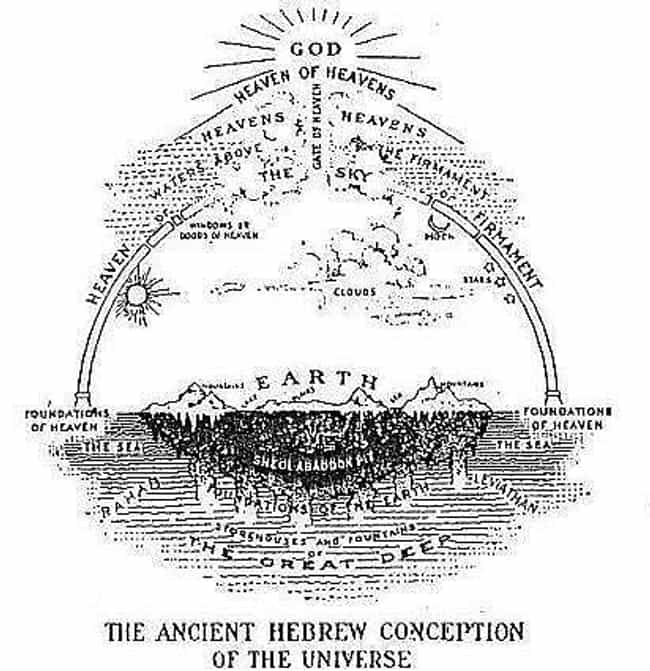This is the 9th part in this series. We’ve covered 1/4 of the Qur’an already. If you missed some of this series, you can see:
my 1st post on surahs 1 & 2.
my 2nd post on surahs 96, 68 & 73.
my 3rd post on surahs 74, 111 & 81.
my 4th post on surahs 87, 92, 89, 93, 94 & 103.
my 5th post jumping to surah 18.
my 6th post on surahs 100, 108, 102, 107, 109 & 105
my 7th post was on surahs 113, 114, 112 & 53.
my 8th post on surahs 80, 97, 91, 85, 95 & 106.
As before, we will be reading each sūrah [chapter] in the order of revelation. We’re reading The Qur’an; A new translation by M. A. S. Abdel Haleem, comparing that to other translations like Quran.com. Then I cross-reference tafsirs to get the best understanding I can before I have a video hangout with those familiar with the Hadiths and traditional interpretations of Islam.
Sūrah 101, “Al-Qari’ah” (The Crashing Blow)
(1) The Crashing Blow! (2) What is the Crashing Blow? (3) What will explain to you what the Crashing Blow is? (4) On a Day when people will be like scattered moths (5) and the mountains like tufts of wool, (6) the one whose good deeds are heavy on the scales (7) will have a pleasant life, (8) but the one whose good deeds are light (9) will have the Bottomless Pit for his home–– (10) what will explain to you what that is?–– (11) a blazing fire.
Other translations call this surah “The Striking Calamity”. But what a surprise, yet another surah that doesn’t say anything except the empty promise of damnation on the day of judgement, the day the mountains will be blown away. (More about that later). Hearing this repeated so often, to the exclusion of anything else, it’s getting really hard to keep my patience enough to not mock these scriptures outright.
Actually this surah is unique because it is the only one I’ve seen so far that rewards goodness rather than gullibility, as if we’re judged on what we do rather than what we believe. This is directly contradicted by nearly every surah we’ve read before this.
Sūrah 75 “Al-Qiyamah” (The Resurrection)
(1) By the Day of Resurrection (2) and by the self-reproaching soul! (3) Does man think We shall not put his bones back together? (4) In fact, We can reshape his very fingertips. (5) Yet man wants to deny what is ahead of him: (6) he says, ‘So, when will this Day of Resurrection be?’ (7) When eyes are dazzled (8) and the moon eclipsed, (9) when the sun and the moon are brought together, (10) on that Day man will say, ‘Where can I escape?’ (11) Truly, there is no refuge: (12) they will all return to your Lord on that Day.
My first reaction to this surah was to note that this has already happened a few times just within my life-span. I’ve seen the moon eclipsed by the shadow of the earth plenty of times. I’ve even seen the sun and moon brought together in a solar eclipse too. But Muhammad (or Gabriel or whoever is supposed to be speaking) seems to mean that both are happening at the same time. The tafsirs say this is when the moon is darkened as the sun and moon are united, joined. The only possible interpretation is that the day of judgement will be the very next time there is a total eclipse of the sun.
Don’t ask me what he thought previous eclipses might have meant. Surely they were foul omens, just like seeing comets in the night sky. But he doesn’t give any other condition to look for.
Assuming Muhammad really existed and that the whole of the Qur’an was written by him, (because it really doesn’t make any difference who wrote it) remember that earlier surahs already indicated that the author thought the world was flat, and that there is a giant crystal dome, called a firmament over the earth, and that the sun and moon are both the same size, and that they travel along the inside arc of that domicile. This was the common notion in that region and throughout Asia, and I have been advised that it will be relevant again in up-coming surahs, which we’ll see later too.
What this shows us is that Muhammad wasn’t aware that eclipses happen naturally, nor that it is only visible from our limited perspective; that what is seen as a total eclipse of the sun in Mecca might only be a partial eclipse in Medina, and wouldn’t be an eclipse at all in Constantinople. And it would be nighttime in the Americas; which Muhammad couldn’t have known anything about.
So that “on that Day man will say, “where can I escape?”. Not understanding what’s going on, that man may be terrified. But he won’t be scared for long. Because in a very few minutes, it will be over and everything will be completely normal again, and most people around the world won’t even know that it happened.
Our planet has a uniquely curious distinction from all others in that our one visible natural satellite appears to be the same size as the sun and the same distance away. Muhammad obviously didn’t know that’s only an illusion; because the sun is roughly 400 times bigger than the moon and coincidentally 400 times further away too. How could he know that? He thought the sun sets in a body of water on the earth! He also thought that the moon follows the sun, which should make an eclipse impossible.
But the more important point here is that—like so many prophesies—this one doesn’t have an expiration date, and the conditions described for “that day to come” have already occurred over and over again over the many centuries since then.
(13) On that Day, man will be told what he put first and what he put last. (14) Truly, man is a clear witness against himself, (15) despite all the excuses he may put forward.
In other words, “he knows if you’ve been bad or good. So you’d better be good for goodness sake”.

(16) [Prophet], do not rush your tongue in an attempt to hasten [your memorization of] the Revelation: (17) We shall make sure of its safe collection and recitation. (18) When We have recited it, repeat the recitation (19) and We shall make it clear. (20) Truly you [people] love this fleeting world (21) and neglect the life to come. (22) On that Day there will be radiant faces, (23) looking towards their Lord, (24) and on that Day there will be the sad and despairing faces (25) of those who realize that a great calamity is about to befall them.

(26) Truly, when the soul reaches the collarbone; (27) when it is said, ‘Could any charm-healer save him now?’; (28) when he knows it is the final parting; (29) when his legs are brought together: (30) on that day he will be driven towards your Lord.
Some translations say verse 26 is “when the life comes up to the throat”. So I guess we’re dealing with a colloquialism that wouldn’t make sense to Americans. Abdel Haleem says verse 29 refers to when the body is wrapped in a shroud, which also doesn’t make sense in the context of the chaos of Judgement Day. But then, it did say that the dead would be revived and reassembled on that day, made whole again, just to be judged and most likely broken again, being healed and tortured for all eternity—in His mercy.
(31) He neither believed nor prayed, (32) but denied the truth and turned away, (33) walking back to his people with a conceited swagger.
Here it is, another contradiction of Sūrah 101, where we see that good deeds have nothing to do with salvation. It all comes down to obedient submission to belief. That’s what the word, ‘Islam’ means, submission. This surah is proof that this religion, Islam, like all the other popular faiths, is a means of manipulation of the masses. You are expected to stop asking questions and shut up, to believe and do as you’re told, and to never even want to know what the truth really is, nor even what ‘truth’ really means.
(34) Closer and closer it comes to you. (35) Closer and closer still. (36) Does man think he will be left alone? (37) Was he not just a drop of spilt-out sperm, (38) which became a clinging form, which God shaped in due proportion, (39) fashioning from it the two sexes, male and female?
No. God did not shape any proportion. The fusion of two haploid gametes to produce a diploid zygote is basic biology now, but Muhammad could not have known about the chemical selection of X and Y chromosomes to determine sex.
(40) Does He who can do this not have the power to bring the dead back to life?
No. There is no one who can cause or shape the development of a fetus, nor who need do this, as the cells do this all on their own, literally without a thought. thought.
There is no bringing the dead back to life either. That would be evidence of a divine designer, but such is not the case. Because our computers have the means to store information indefinitely even when the system is completely powered down. We can also transfer any or all data from one machine into another; even—in some cases—where the hardware isn’t fully compatible with the software. With a system like that, it would be possible for our data to be transmitted externally, perhaps telepathically. But the system we actually have can’t even store ourselves efficiently, and can’t be transmitted at all. Our software is inextricable from the hardware, non-transferable and irretrievable. Even communicating ideas guarantees data corruption. And our consciousness, everything that goes on in our minds to make us who we are—is lost if our system is shut down; at least once [the equivalent of] the static in our capacitors is discharged. There is no possibility of preserving ourselves or rebooting the system after that, and the data therein, (which is itself entirely electro-chemical) is permanently completely lost. We cannot leave our bodies when our bodies die. Our minds die too, and cannot be restored in bodies that were long dead and buried. None of that is even possibly true.
Sūrah 104 “Al-Humazah” (The Backbiter)
(1) Woe to every fault-finding backbiter (2) who amasses riches, counting them over, (3) thinking they will make him live for ever. (4) No indeed! He will be thrust into the Crusher! (5) What will explain to you what the Crusher is? (6) It is God’s Fire, made to blaze, (7) which rises over people’s hearts. (8) It closes in on them (9) in towering columns.
“Gozer the Traveler will come in one of the pre-chosen forms. During the rectification of the Vuldrenaii, the Traveler came as a very large and moving Torb. Then of coarse in the third reconciliation of the last of the Meketrix Supplicants, they chose a new form for him, that of a gaint Slor! Many Shrubs and Zuuls knew what it was to be roasted in the depths of the Slor that day, I can tell you.”
Sorry, but that’s what I think most of the Qur’an sounds like so far.
Sūrah 77 “Al-Mursalat” ([Winds] Set Forth)
Other translations call this surah “The Emissaries”.
(1) By the [winds] sent forth in swift succession, (2) violently storming, (3) scattering far and wide, (4) separating forcefully, (5) delivering a reminder, (6) as a proof or a warning: (7) what you are promised will come to pass.
That seems an empty promise at this point. I’m not holding my breath.
(8) When the stars are dimmed (9) and the sky is torn apart, (10) when the mountains are turned to dust (11) and the messengers given their appointed time. [to give testimony]
This is still the same story that almost every surah keeps telling, that unbelievers will be damned. Yeah yeah. I know. We get it. But it’s not a convincing message when the messenger thinks that mountains can be blown away, or that the stars are smaller than the moon, or that the sky is a solid dome that can be torn apart. If you want to convince me, don’t give me the empty threat that I’ll be sorry later. Show me proof of concept, and don’t be quite so obviously wrong about absolutely everything all the time.
(12) for what Day has all this been set? (13) The Day of Decision. (14) What will explain to you what the Day of Decision is? (15) Woe, on that Day, to those who denied the truth!
Nope. The truth is what the facts are, what we can show to be true; not empty assertions of irrational absurdity that can’t be verified and do not concord with reality.
(16) Did We not destroy the first [of them]?
No. Whether this passage is Gabriel talking about his fellow angels, or whether it is Allah using the royal “We”, doesn’t matter, as neither of these characters really exist and therefore could never have done anything.
(17) We shall make the last follow them: (18) this is how We deal with the guilty.
Guilty? You mean rational.
(19) Woe, on that Day, to those who denied the truth!
If you care about truth at all, you wouldn’t say things are “truth” that are not evidently true and can’t be verified. You would be sure to back up what you say, so that we can show and know that you’re right, and no one would ever need faith to believe you.
(20) Did We not make you from an underrated fluid (21) which We housed in a safe lodging (22) for a determined period?
No. Life-forms reproduce themselves from single cells, not magic spells or miracles.
(23) We determine [it]: how excellently We determine!
Obviously not. I cannot help but have the opposite opinion, given everything I know about nature or your character according to how most authors describe you.
(24) Woe, on that Day, to those who denied the truth!
We can’t honestly call it truth if we can’t even show that it’s true.
(25) Did We not make the earth a home (26) for the living and the dead?
No. Organisms were already living and dying on this globe for billions of years before some imaginative primitives dreamt you up!
(27) Did We not place firm, lofty mountains on it and provide you with sweet water?
No. Gravity, erosion and chemical processes don’t need direction or supervision, and gods don’t have any mechanism that could work to that end anyway. The water was already here before we were, and we were here before you. Man created gods in his own image.
(28) Woe, on that Day, to those who denied the truth!
You don’t have truth. All you have are empty assertions. Those have no more credence than claims that have been proven false.
(29) They will be told, ‘Go to that which you used to deny! (30) Go to a shadow of smoke!’ It rises in three columns; (31) no shade does it give, nor relief from the flame; (32) it shoots out sparks as large as tree trunks (33) and as bright as copper.
Quranx.com says this is talking about columns of flame from which there is no shelter or shade. A long time ago, someone saw a volcano and assumed that it’s Hell. How sad it is that hundreds of millions of people still believe that today.
(34) Woe, on that Day, to those who denied the truth!
Quit lying. That day ain’t ever coming, and neither are you.
(35) On that Day they will be speechless, (36) and they will be given no chance to offer any excuses.
Because if there’s one thing the most powerful being imaginable can’t stand it’s back-talk from mere mortals who aren’t gullible enough to believe impossible nonsense for no good reason.
(37) Woe, on that Day, to those who denied the truth!
I do not deny the truth. I deny the lie. To assert baseless speculation as though it were a matter of fact is to lie. As is writing a book that pretends to speak for God.
(38) [They will be told], ‘This is the Day of Decision: We have gathered you and earlier generations. (39) If you have any plots against Me, try them now.’
Wouldn’t you already know if I did? According to both the Bible and the Qur’an, I can’t have a plot against you that you didn’t give me, and I can’t do anything against you unless you will me to do it. Yet you’ll still punish me for being your pawn, for not believing when you closed my ears to your word. Despite this, your believers call you just?! While pretending that they have free will?!
(40) Woe, on that Day, to those who denied the truth!
“Religious truth” apparently means “raving insanity”.
(41) But those who took heed of God will enjoy cool shade, springs,
Because always punishing with a stick by itself doesn’t work as well as when you offer a carrot too.
(42) and any fruit they desire;
Except the one that gives us knowledge, right? Because faith-based belief-systems obviously can’t allow us that. The quest for knowledge has to be treated like the ultimate sin.
(43) [they will be told], ‘Eat and drink to your hearts’ content as a reward for your deeds: (44) this is how We reward those who do good.’
Notice that “do good deeds” here means “believe what we say”.
(45) Woe, on that Day, to those who denied the truth!
When religious leaders ask you to believe what they say, they’re telling you not to test or question their lies.
(46) [You may] eat and enjoy yourselves for a short while, evildoers that you are. (47) Woe, on that Day, to those who denied the truth!
And here we see that not believing the lies of religion means to do evil.
(48) When they are told, ‘Bow down in prayer,’ they do not do so.
Because religion wants us all to be obedient minions. It is the greatest fraud men have ever devised, and it has wrought more damage than anything else we’ve invented.
(49) Woe, on that Day, to those who denied the truth!
Liars and poor salesmen are the only things in reality that desire or require your faith to believe them.
(50) In what revelation, after this, will they believe?
It’s not just that everything said in the scriptures could qualify as a lie. Even if that were not the case, it would still be enough to notice that there is no truth to be found in any holy book. Not for this religion, nor any other either.
Here is the panel discussion of this blog post:


